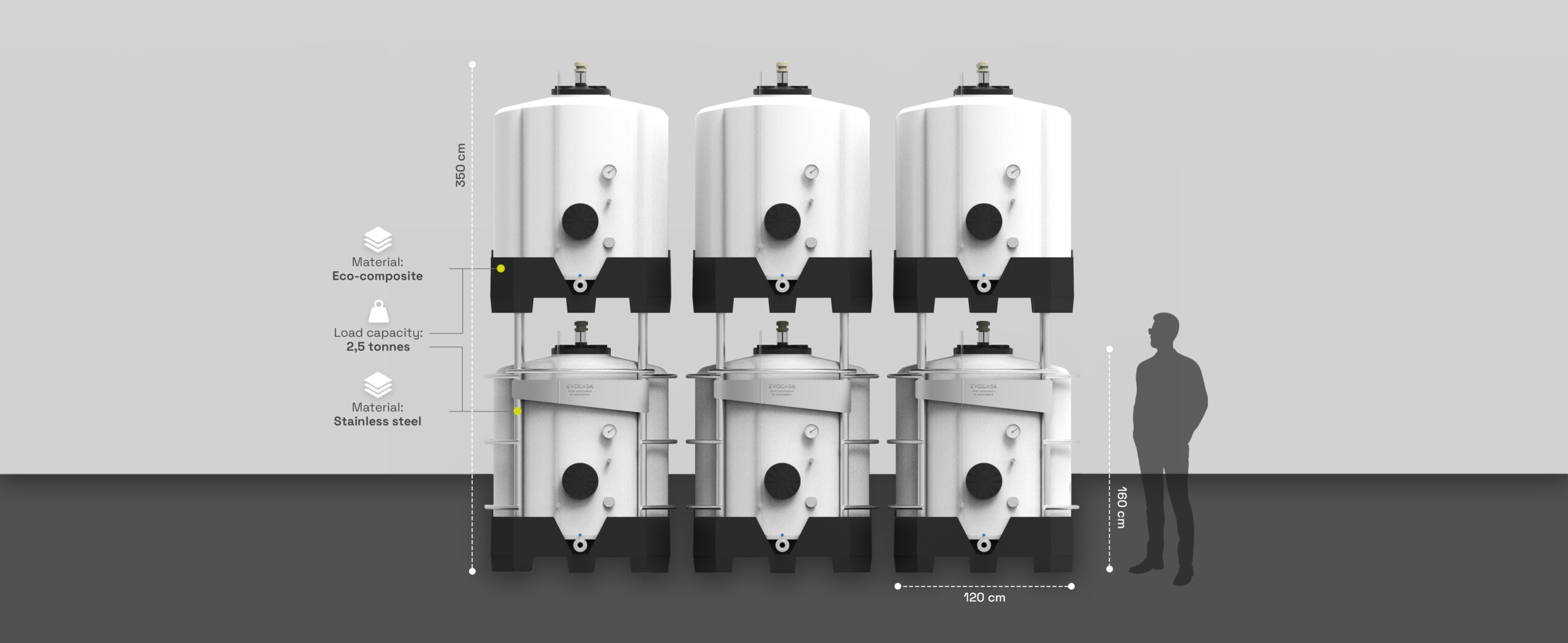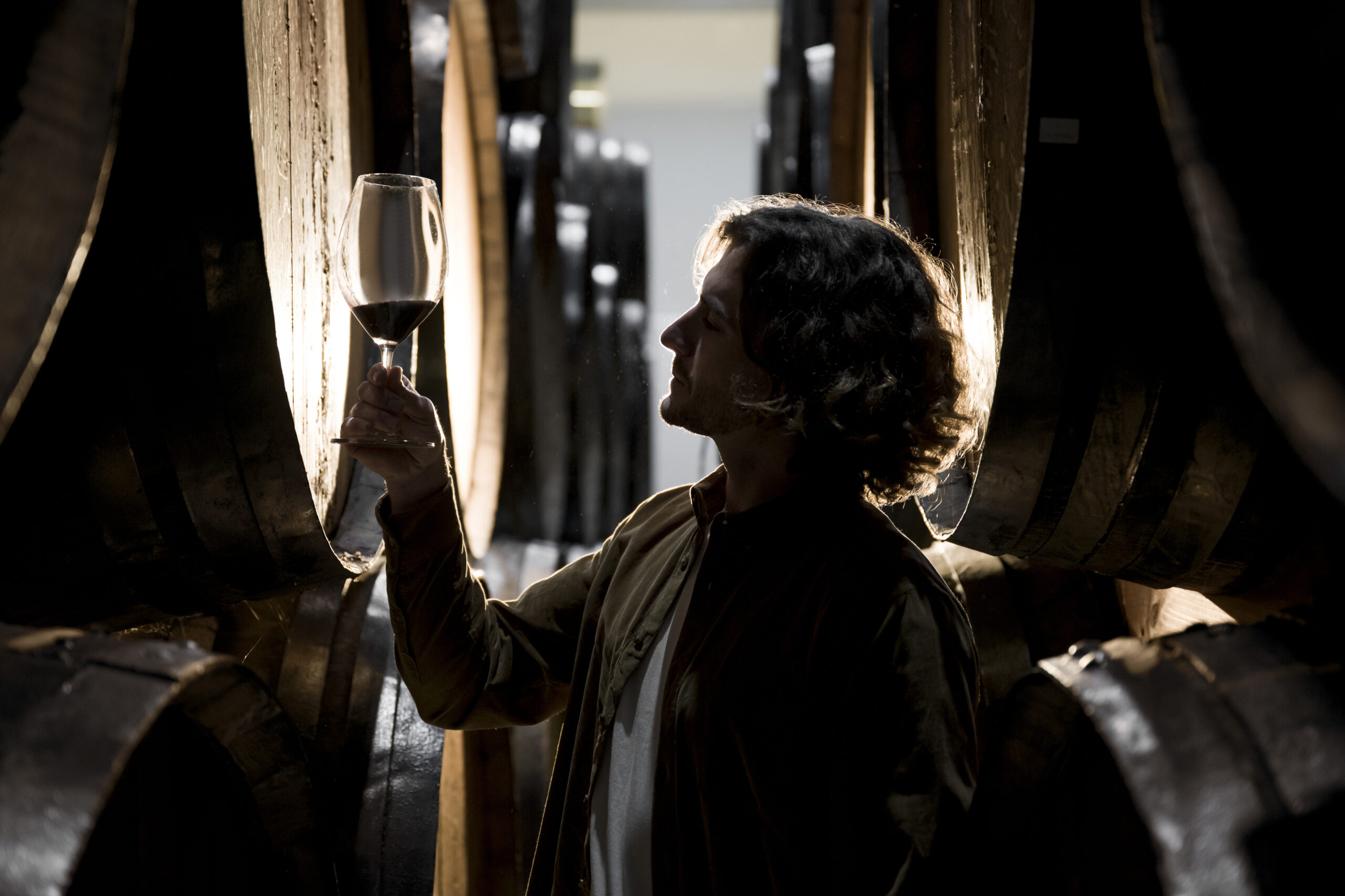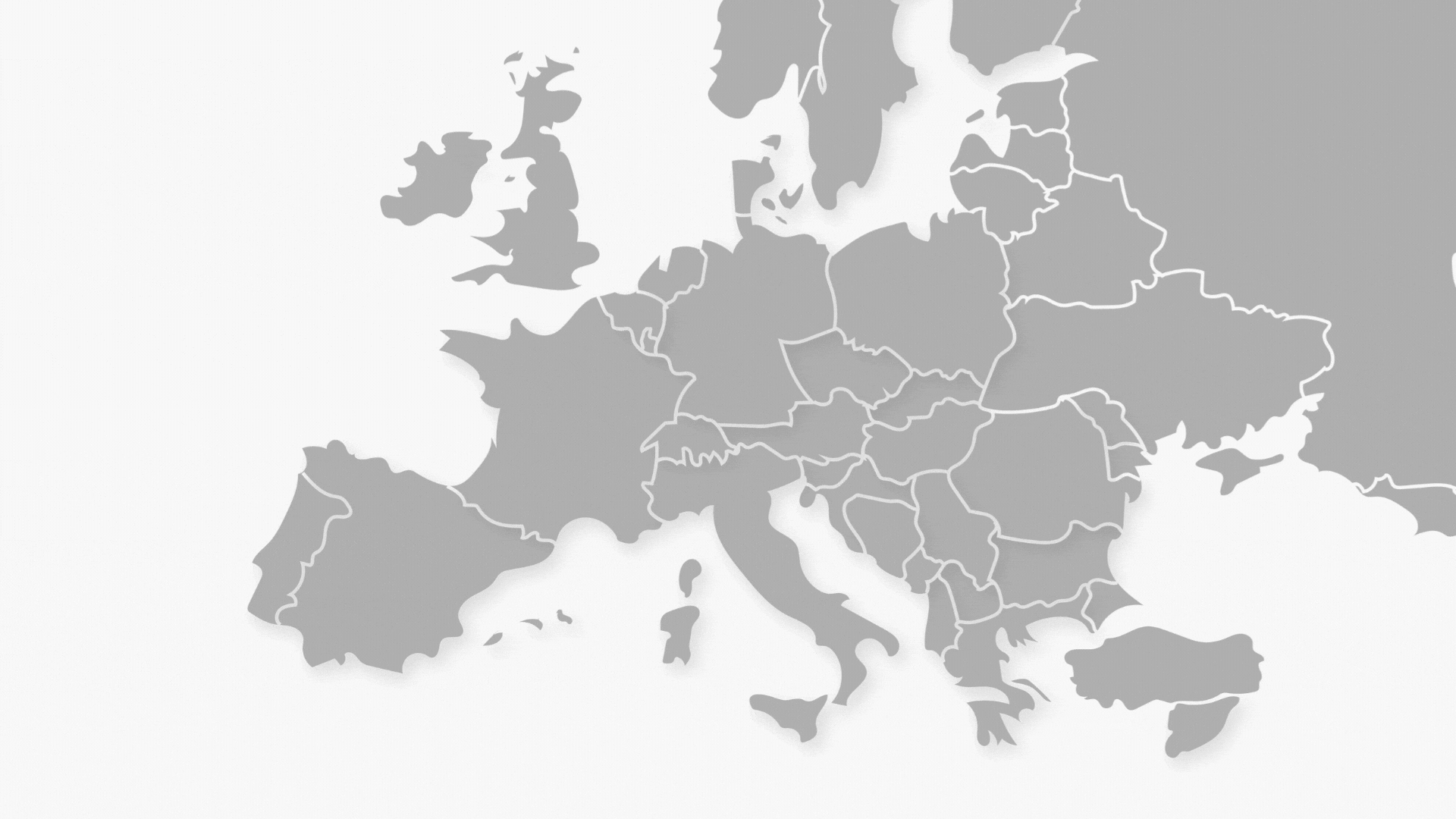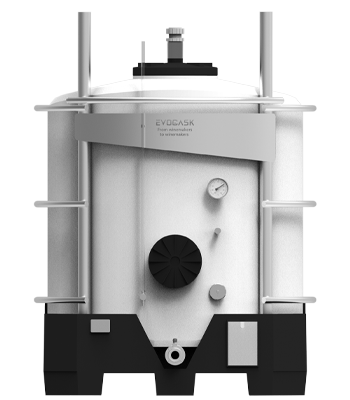
From winemakers
to winemakers
6 and 11 hl EvoCask models are available
in Europe from June 2024!

From winemakers
to winemakers
6 and 11 hl EvoCask models are available
in Europe from June 2024!

From winemakers
to winemakers
6 and 11 hl EvoCask models are available
in Europe from June 2024!
From winemakers
to winemakers
6 and 11 hl EvoCask models are available
in Europe from June 2024!
Reduce your costs
Less barrel and labour costs, better use of space in the cellar. EvoCask is a long-term investment that does not need to be replaced every three years. With proper maintenance, it will still be as high quality in 20 years as it was in the early days.
Protect our environment
The EvoCask maturation tank works with oak alternatives. These oak staves are more environmentally friendly than traditional barrels, as they can give the same result with less wood use. You can therefore significantly reduce the ecological footprint of your winery.
Adapt to your needs
A Cabernet Sauvignon aged in oak barrels will have excellent flavours, but a Riesling does not always need the same method. The EvoCask offers a unique flexibility, ensuring optimal oxygenation for ageing for all types of wine. This cannot be achieved with stainless steel tanks.
Contact
Office time: 8:00 - 16:00
Write to us.
If you have a question or comment please complete the form below and we will get you back as soon as possible.
Rotate the model
Maturing with 21st century technology
From winemakers to winemakers
The EvoCask wine tank is a maturation tank designed for winemakers, manufactured with an eco-composite formula that provides controlled oxygen permeation. The 21st century technology allows the tank to be both easy to clean and modern in appearance, with maximum space utilisation and environmentally friendly solutions. Our aim is to enable wineries to operate with less work, less risk and in a cost-effective way.
Step into the 21st century and take full advantage of the EvoCask wine container.
1. eco-composite formula
2. Optimal
cleanability and
use of space
3. controlled
oxygen
permeability
Eco-composite Formula: an innovative and durable solution for the winery
Oxygen permeation and food safety.
Controlled oxygen transmission to ensure wine maturation, similar to oak barrels, developed for the food industry.
Long life period
Can be used for up to 30-50 years, compared to 2-5 years for oak barrels.
Environmentally friendly solution
Can be recycled, reducing environmental impact.
Hygiene
Non-porous surface, less prone to accumulation of dirt and microorganisms.
Easy maintenance and manageability
Easy to clean, light weight, easy to move and long-lasting usability.
Cost-effectiveness
A more economical solution due to longer life and lower maintenance requirements.
Versatility in the winery
Flavour neutrality, allowing the winemaker to achieve the desired flavour profile using other methods.
Temperature Resistance
Excellent for temperature fluctuations encountered in winemaking (up to -40-80°C)
Acid and Alkaline Resistance
Excellent acid and alkaline resistance, allowing safe storage of a variety of wines without damaging the material.
Mechanical properties
High impact resistance (Izod test: 20-30 kJ/m²) and flexibility, which protects the container from physical damage and ensures durability.
Thermal Conductivity Coefficient
0.38 W/mK, which ensures good thermal insulation, minimising the effect of temperature fluctuations on the quality of the wine.
Tensile strength
25-30 MPa, which ensures the durability of the material and its resistance to mechanical stress.
Density
0,945 to 0,965 g/cm³, which results in low weight and relatively easy handling.
About production
The EvoCask containers we produce for wineries are manufactured using rotational moulding technology. This is a very special technology as injection moulding of large food products is extremely expensive or not possible at all.
Some facts about rotational moulding
Rotational moulding is a plastic moulding technique that uses heat and rotational force to mould hollow objects. This versatile technology can be used to produce a wide range of products, including pots and containers of various sizes and shapes, beverage, food and medical containers, as well as drinkwater and a variety of agricultural uses. In the process, plastic powder is heated in a mould until it melts, takes the shape of the mould and is then cooled. The mould is rotated throughout the heating and cooling process to evenly distribute the wall thickness of the piece.
Why is Evocask the best solution?
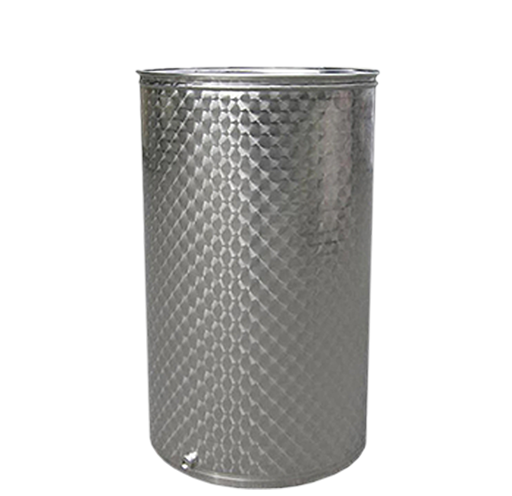
Steel tank
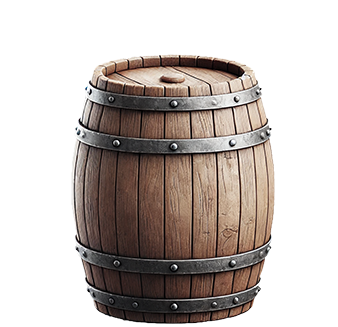
wooden barrel
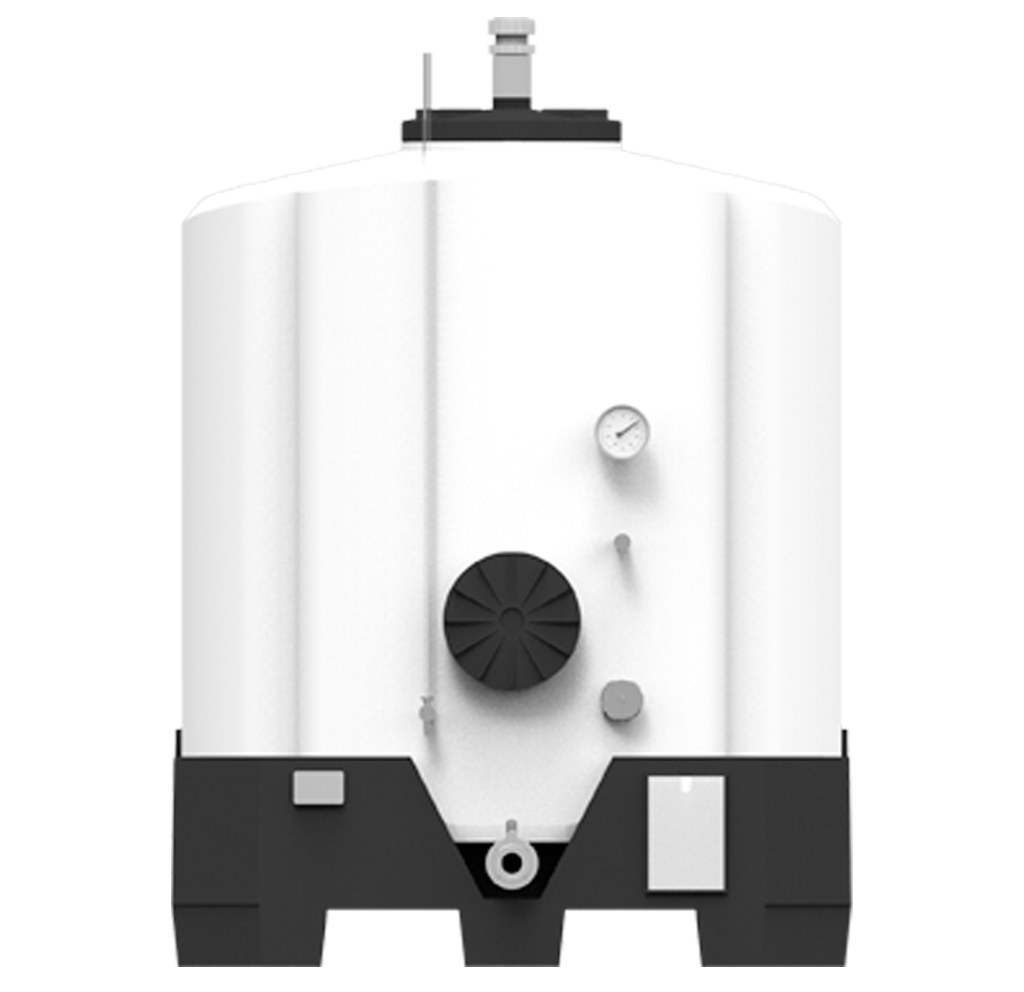
Evocask
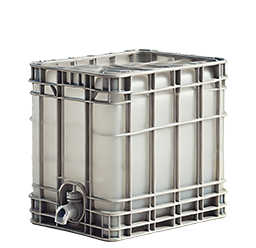
IBC tank
Lifetime, durability
High
Low
High
Medium
Air permeability
None
Variable
Optimal
Too high
Risk of infection
None
Yes
None
Yes
Cleanability
Easy
Steel tanks have all the positive qualities of a good value, as long as fresh, reductive wine is the goal. However, optimum oxygen intake is essential to mature the wine, which can only be achieved with very expensive technology, and the possibility of error is very high compared to passive ageing.
Difficult
The challenges of cleaning wooden barrels are that their porous structure starts to clog as soon as wine is poured into them, so cleaning them thoroughly is time-consuming. It needs requires special tools and techniques, and they lose their oxygen permeability almost completely after the third filling. In addition the risk of contamination is always a risk to be reckoned with.
Easy
The Evocask wine container’s smooth, curved interior surfaces and spacious openings allow all parts to be easily accessible, cleaned quickly and thoroughly, and the last drop to spill out. After each cleaning, the original oxygen permeability, optimal for ageing wines, is restored. With oak staves, the winemaker can decide how much wood flavour they want, or even show the true, matured face of the wine without the wood elements.
Difficult
Cleaning IBCs is problematic because the rectangular shape makes it difficult to reach the corners and the bottom is flat, making it almost impossible to empty them completely even when tilted. The support frame is usually galvanised, and even a minor damage will start corrosion. The much higher oxygen permeability makes them unsuitable for wine ageing.
From winemakers to winemakers

IBC tank
Lifetime, durability
Medium
Air permeability
Too high
Risk of infection
Yes
Cleanability
Difficult
Cleaning IBCs is problematic because the rectangular shape makes it difficult to reach the corners and the bottom is flat, making it almost impossible to empty them completely even when tilted. The support frame is usually galvanised, and even a minor damage will start corrosion. The much higher oxygen permeability makes them unsuitable for wine ageing.

Wooden barrel
Lifetime, durability
Low
Air permeability
Variable
Risk of infection
Yes
Cleanability
Difficult
The challenges of cleaning wooden barrels are that their porous structure starts to clog as soon as wine is poured into them, so cleaning them thoroughly is time-consuming. It needs requires special tools and techniques, and they lose their oxygen permeability almost completely after the third filling. In addition the risk of contamination is always a risk to be reckoned with.

Evocask
Lifetime, durability
High
Air permeability
Optimal
Risk of infection
None
Cleanability
Easy
The Evocask wine container’s smooth, curved interior surfaces and spacious openings allow all parts to be easily accessible, cleaned quickly and thoroughly, and the last drop to spill out. After each cleaning, the original oxygen permeability, optimal for ageing wines, is restored. With oak staves, the winemaker can decide how much wood flavour they want, or even show the true, matured face of the wine without the wood elements.

Steel tank
Lifetime, durability
High
Air permeability
None
Risk of infection
None
Cleanability
Easy
Steel tanks have all the positive qualities of a good value, as long as fresh, reductive wine is the goal. However, optimum oxygen intake is essential to mature the wine, which can only be achieved with very expensive technology, and the possibility of error is very high compared to passive ageing.
Our products
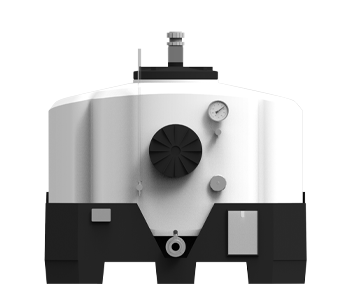
Model 6 sur lie
600 liter
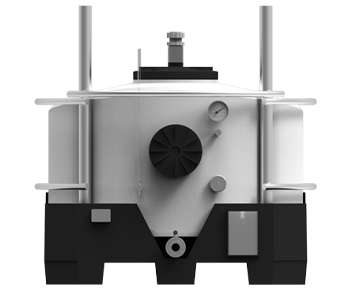
Model 6 sur lie R
600 liter
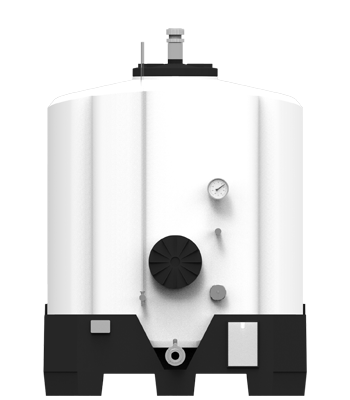
Model 11
1100 liter

Model 11 R
1100 liter
1. Supporting frame
2. Lid
2+. Pressure valve
3. Wine tank
4. Level indicator
5. Thermometer
6. Manhole lid
7. Racking port
8. Drain port
9. Sample tap
10. Pallet
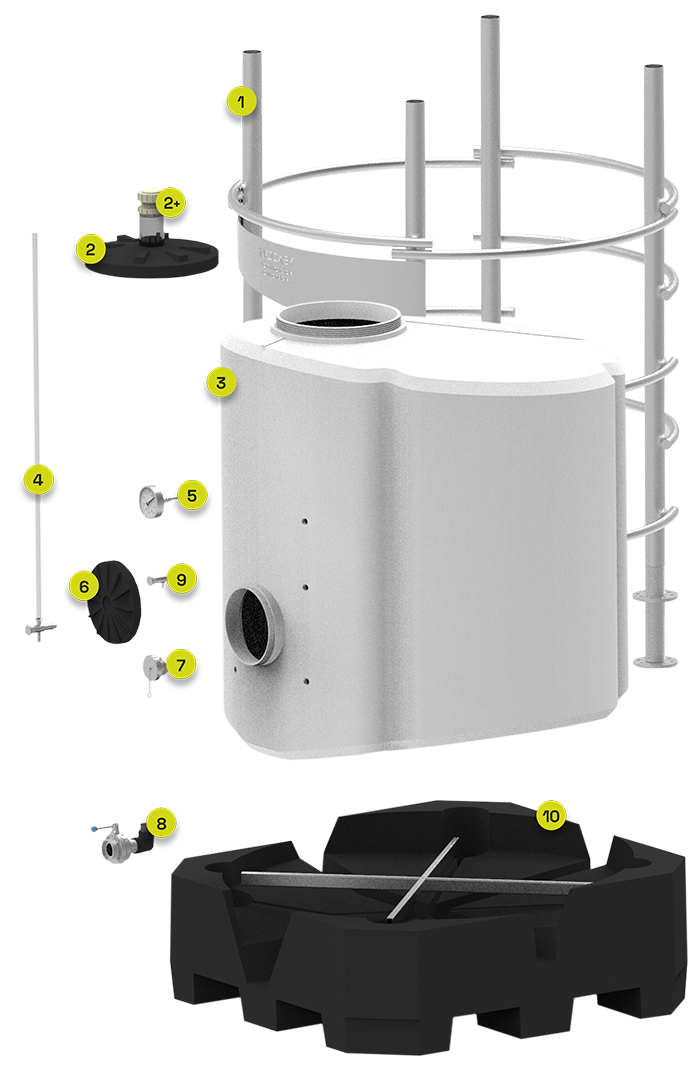

Model 6 sur lie
600 liter

Model 6 sur lie R
600 liter

Model 11
1100 liter

Model 11 R
1100 liter

1. Supporting frame 2. Lid 2+. Pressure valve 3. Wine tank 4. Level indicator 5. Thermometer 6. Manhole lid 7. Racking port 8. Drain port 9. Sample tap 10. Pallet
The beginnings...
It all started when we were looking for oxygen-permeable plastic tanks for our winery. We believe in the right plastic because we think it’s the sustainable future. However, we couldn’t find the ideal product for us on the market; it seemed as if the manufacturers didn’t involve the winemakers in the design. The difficult-to-clean shapes of the tanks, poor space utilisation and with de covered bottom lees had no access to oxygen were all problems, so in the end we didn’t buy any of these for ourselves.
Talking to our winemaker colleagues, we saw the need and decided to create our own version. We started to develop an innovative oxygen-permeable tank with European food raw material manufacturers and laboratories in mind, with a focus on excellent space utilisation, stackability and unique shape. Our engineers received positive feedback from professional focus groups from the very first versions, and we used state-of-the-art tools such as SolidWorks and SolidEdge in the design process.
It was a lot of work, with unexpected challenges, but the end result is something we are genuinely happy to use.
EvoCask: Sustainable and Cost Effective Wine Container
- Lower costs: designed for the 21st century, EvoCask wine casks are significantly cheaper than oak casks due to their professional production technology. EvoCask containers can be used for up to 30-50 years, compared to oak barrels, which are usually only used for 2-5 years before they need to be replaced.
- Controlled oxygen transmission: thanks to their special eco-composite material, EvoCask tanks are able to transmit oxygen at a controlled rate, which allows the same wine maturation as oak barrels.
- Environmentally friendly solution: thanks to their eco-composite material, EvoCask wine containers can be recycled at the end of their lives, reducing their environmental impact. ESG for wineries lower carbon footprint.
- Greater flexibility and versatility – more wine making: EvoCask tanks do not add any flavour to the wine, so winemakers have full control over the wine’s flavour using other methods, such as oak chips or oak alternatives.
- Easier maintenance: cleaning and maintenance of EvoCask containers is much easier and less costly than oak containers, which require regular care and special treatment.
- Hygiene and safety – improved hygiene: EvoCask containers are non-porous, which means they are less prone to the build-up of dirt and microorganisms, unlike oak containers, which can often harbour mould and other contaminants.
- Safety: the material of EvoCask containers does not react with wine, so there is no risk of undesirable chemical reactions that can occur with wood.
- Use of space – compact and lightweight: EvoCask containers are generally lighter and take up less space than traditional wooden barrels, which is particularly useful for smaller wineries or cellars where space optimisation is critical. These benefits all contribute to the increasing popularity of oxygen-permeable plastic tanks like EvoCask in modern wineries, where cost-effectiveness, sustainability and winemaking versatility are paramount.
EvoCask ESG
Environmental, Social and Governance
The use of the EvoCask wine container offers significant benefits in terms of ESG (Environmental, Social and Governance) indicators for wine companies – especially for larger wine distributors that are already ESG committed. The EU ESG extension will gradually become a mandatory documentation aspect for all vendors and distributors. Criteria are playing an increasingly important role in the way companies operate today, as investors and consumers more and more expect sustainable and responsible business practices. The use of EvoCask containers offers many of these sustainability benefits.
Details
1. Environmental Benefits
- Reduced deforestation: EvoCask containers can be used for up to 30-50 years, compared to oak containers, which have a lifespan of only 2-5 years. This means that using a single EvoCask container can replace up to 10-50 oak barrels over its lifetime. Fewer oak trees need to be felled, contributing to forest conservation and biodiversity.
- Reduced carbon emissions: the production and transport of oak barrels requires significant amounts of energy and resources, while the production and transport of EvoCask containers consumes less energy. This helps to reduce the carbon footprint of wineries, which has a positive impact on the fight against global warming.
- Recyclability: EvoCask containers can be made from recycled plastic and can be reprocessed at the end of their lives, minimising waste generation and environmental impact.
2. Social Impacts
- Promoting sustainability practices: by using longer-lasting and environmentally friendly EvoCask containers, wineries can promote sustainability practices in the industry, which can increase environmental awareness in society.
- Social responsibility: It is important for wineries to make decisions that take future generations into account. Using EvoCask can help companies to make a positive social impact by using more sustainable production methods.
3. Governance Benefits
- Improving sustainability reporting: ESG aspects are now part of corporate reporting. The use of EvoCask containers can positively impact sustainability reporting, improving a company’s ESG metrics, which can make the company more attractive to investors.
Risk reduction: durable and sustainable products such as EvoCask can reduce long-term risks, such as fluctuations in raw material prices or tightening environmental regulations.
EvoCask for a circular economy
Action plan towards a sustainable future
EvoCask is committed to sustainable development and environmental protection, as reflected in the EU’s Circular Economy Action Plan, which aims to jointly promote a circular economy in Europe. The aim is to make products that have a longer lives in the economic cycle, so that we minimise waste and maximise resource efficiency, while reducing the carbon footprint and cost of transport.
Details
Key Objectives of the Action Plan
What is a circular economy, definition and principles?
The circular economy is a sustainable economic system that aims to keep materials and products in circulation for as long as possible. The aim is to minimise waste and use resources efficiently.
Principles and functioning of the circular economy
The circular economy is based on the principle of reduce, reuse, recycle. For industrial production, this means
- Reduction = reducing material consumption and waste production: in polymer technology, for example, this means producing fewer new polymers and using recycled materials instead.
- Reuse = extending the life of products through repair and reuse: plastic products can be designed to be easier to repair or reuse through innovative design approaches.
- Recycling = returning materials to the manufacturing process: the development of recycling processes for polymers is central here, so that materials can be reused after the first phase of use.
Products are designed to be durable and easy to repair or recycle. Materials are used efficiently and waste is minimised.
CO2 savings are variable, with carbon reductions of up to 30-90% achieved by recycling polymers compared to the production of new raw materials.
Why is a circular economy so important?
The circular economy is particularly important for polymer technology in order to combat increasing resource consumption and pollution. By implementing circular processes, we have the opportunity to develop sustainable products that are both ecologically and economically beneficial. Through circular processes, companies can reduce their environmental footprint while increasing their efficiency. Efficient recycling processes and the reuse of polymers can make a significant contribution to conserving natural resources and reducing waste.
1. Product Design and Production
Sustainable product design is at the heart of the circular economy. EvoCask’s action plan promotes the design of durable, repairable and recyclable products that not only have a longer life span, but also reduce the demand for new raw materials. It means that products stay in the economy for longer, reducing waste.
2. Strengthening the Consumer Role
Consumers play a key role in creating a circular economy. EvoCask’s action plan encourages consumers to make more sustainable choices, such as choosing more durable, recyclable products, thus supporting the circular economy and reducing waste.
3. Waste Management Development
Improving the efficiency of waste collection and recycling is essential for a circular economy. EvoCask aims to facilitate the recovery of valuable materials and their return to the production cycle, thereby reducing the need to extract new raw materials.
4. Supporting the Secondary Raw Materials Market
Developing the market for recycled materials is a priority in EvoCask’s Circular Economy Action Plan. The use of secondary raw materials reduces the demand on natural resources and contributes to the sustainability of the economy.
5. Industrial Measures
EvoCask sets out concrete actions for industries such as plastics, construction, textiles and electronics. These industries are largely responsible for waste production, so the introduction of sustainability guidelines is essential to protect the environment.
Its importance for polymer technology
EvoCask’s Circular Economy Action Plan encourages the development and use of recycling technologies. This will reduce the need to produce new polymers, promoting the use of more sustainable materials and the development of innovative solutions that not only benefit the environment but also give companies a competitive advantage.
The Action Plan is in line with the EU’s objectives to ensure that economic activities are sustainable in the long term, reducing environmental pressures and supporting the circular economy.

1. Product design and manufacturing
Sustainable product design is part of the circular economy, resulting in more durable, repairable and recycable products, reducing the demand for new raw materials.
2. The role of consumers
Consumers can help to create a green economy by choosing sustainable products.
3. Improving waste management
Improving waste collection and recycling is important to recover valuable materials and reduce environmental impacts.
4. Supporting the market for secondary raw materials
Expanding the market for recycled materials reduces the need to extract natural resources.
5. Sector-specific measures
The EU is introducing targeted measures to promote sustainability in industries such as plastics, construction, textiles and electronics.
EvoCask in Europe
Located strategically within Europe, our company supplies high-quality wine tanks to numerous regions across the continent. With established presence and partners in several European countries, we are dedicated to delivering our products efficiently to a wide network. Our reach and logistics ensure that wherever you are in Europe, our premium tanks are just a step away from supporting your business needs.
Where to buy
Our premium wine tanks are available across Europe, supported by a trusted network of distributors and partners. We pride ourselves on providing exceptional quality and service, making it easy to purchase our tanks wherever you are.
Write to us.
If you have a question or comment please complete the form below and we will get you back as soon as possible.
